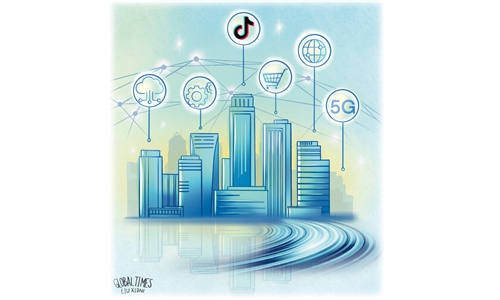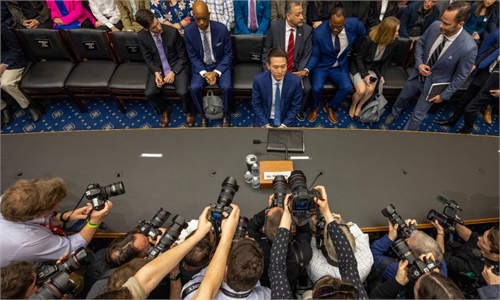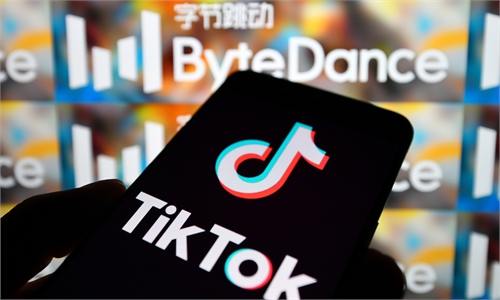Chinese netizens highlight contrast between treatments of Apple CEO in Beijing and TikTok CEO in US
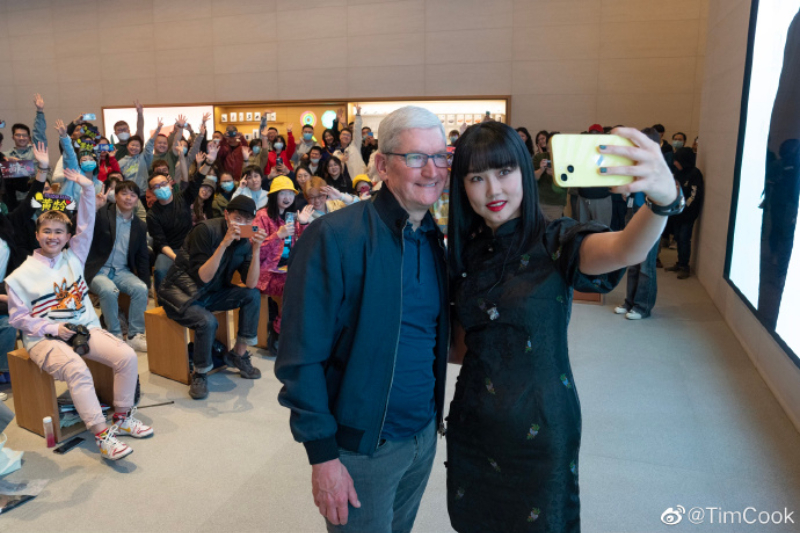
A screenshot of Tim Cook's Sina Weibo on March 24, 2023
Apple CEO Tim Cook was met with rounds of cheers and applause when he showed up at an Apple store in Beijing on Friday, one day after TikTok CEO Shou Zi Chew was grilled by US lawmakers for roughly five hours, prompting Chinese netizens to draw a stark contrast of the two countries' business environments.
Also on Friday, Chinese Commerce Minister Wang Wentao met with Craig Allen, president of the US-China Business Council, vowing that China will provide a better environment and services for foreign firms and strive to create stable expectations for cooperation between Chinese and US companies.
That also stood in stark contrast to US politicians' blatant threats and attempts to ban TikTok and force the sale of the app owned by Chinese firm ByteDance to a US firm. Such a contrast showed the Chinese government's open attitude to foreign businesses as well as the US government's hostile approach to them, experts noted.
On Friday afternoon, Cook, surrounded by aides, walked into the Apple store in Beijing's Sanlitun, instantly drawing applause and cheers from employees and customers alike inside the store, according to video clips posted online. Cook smiled and shook hands with employees and customers.
"Wonderful to see our amazing customers and team at Apple Sanlitun. Thank you to Huang Ling for the tremendous performance. Good luck with your upcoming tour," he posted on his account on Sina Weibo in both Chinese and English, along with a picture with the Chinese singer.
Cook's appearance at the store became a trending topic on Weibo, with more than 91 million views as of 10 pm on Friday.
However, the buzz also prompted many Chinese netizens to draw a stark contrast between the warm welcome Cook received in China and the disrespect and disdain US lawmakers showed Chew, who is a Singaporean, at a hearing of the US Congress a day earlier.
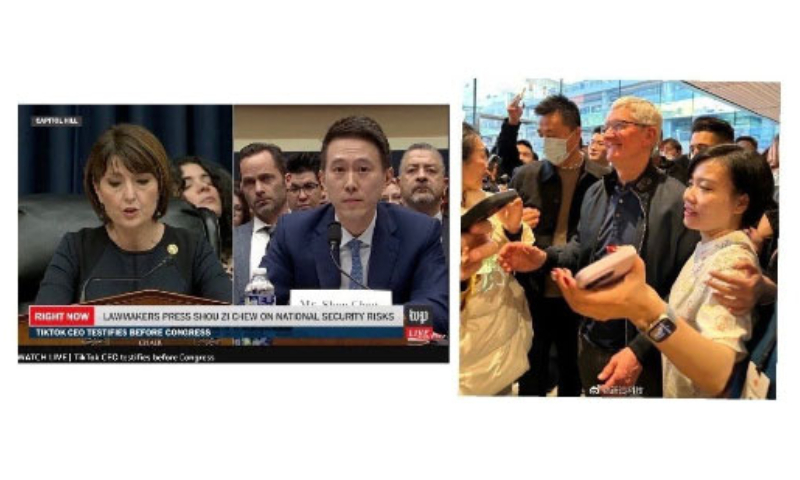
A picture made by Chinese netizens
"TikTok CEO was under siege at the US hearing, while Apple CEO was enthusiastically welcomed by people at its flagship Chinese store. This shows that China is the one that is actually practicing fair and free trade," one netizen commented.
"This is very ironic," another netizen wrote, also pointing to the US threat to completely ban TikTok.
Another net user said, "While Apple CEO is welcomed in China, TikTok CEO is trying to mitigate the US' nationwide ban on it. Which market is fair!"
On Thursday, Chew testified before the US Congress, where US lawmakers took turns to attack TikTok and Communist Party of China, while completely ignoring what Chew had to say about the firms' efforts to address security concerns. Following the hearing, US lawmakers are determined to ban TikTok more than ever, according to some US media reports. Meanwhile, the Biden administration has reportedly demanded the firm be sold to a US buyer.
These contrasts between China and the US are essentially different attitudes toward overseas investment, Gao Lingyun, an expert at the Chinese Academy of Social Sciences in Beijing, told the Global Times on Friday.
Regarding Shou Zi Chew, TikTok's CEO who has come under the spotlight as he tries to defend the company from a growing security backlash, the US government has sent a very bad signal to companies operating in the US, companies around the world, and the public, in that companies investing in the US will be restricted, Gao said.
In stark contrast to the US crackdown on Chinese firms, the Chinese government is moving to expand market access for US and other foreign companies. During the meeting on Friday, Wang said that China will "unswervingly expand high-level opening-up to the outside world, provide better services and environment for foreign-funded enterprises, and strive to create stable expectations for cooperation between enterprises of the two countries."
